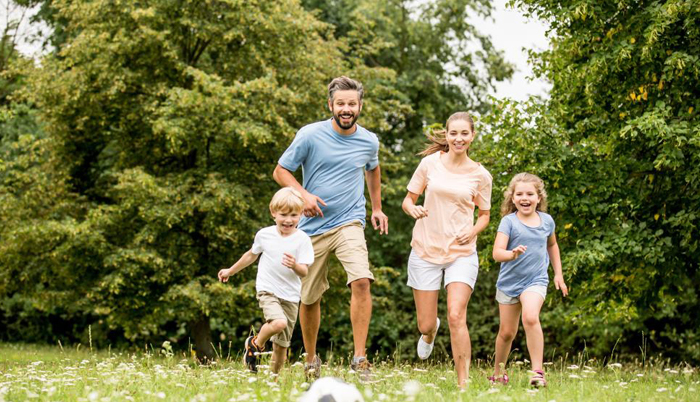![]() Home > Lifestyle
Home > Lifestyle
Green Space Makes You Happy: A Childhood Spent In Nature Decreases Risk Of Later Depression

News Target | Natural News
![]() December 27th, 2023 | 01:28 AM |
December 27th, 2023 | 01:28 AM | ![]() 948 views
948 views
NATURAL NEWS
Taking a nice walk around a beautiful, quiet park can help ease your stress. But did you know that green spaces also offer long-term benefits for kids? According to a study, children who grow up playing in green spaces have a reduced risk of developing a mental disorder later in life.
The study was published in the journal Proceedings of the National Academy of Sciences of the United States of America (PNAS) and was conducted by researchers from Aarhus University in Denmark.
What are green spaces?
Green spaces refer to open areas that represent a fundamental component of any urban ecosystem.
The following public areas are considered green spaces:
Parks
Sports fields
Woods
Natural meadows
Wetlands or other ecosystems
These green urban areas facilitate physical activity and relaxation. The trees in green spaces offer many benefits, such as producing oxygen and filtering harmful air pollution like airborne particulate matter.
Urban parks and gardens are essential for cooling cities. These spaces also offer safe routes for walking and cycling for transport purposes. Additionally, gardens and parks function as public sites for physical activity, recreation, and social interaction.
Green spaces are important for overall health. According to recent estimates, factors such as physical inactivity, which is linked to poor walkability and lack of access to recreational areas, makes up at least 3.3 percent of global deaths.
The World Health Organization (WHO) estimates that over 450 million people around the globe have a mental disorder, and this number is expected to increase.
Green spaces and mental health
For the study, scientists used satellite data gathered from 1985 to 2013 to map the presence of green space around the childhood homes of almost a million Danes. The researchers then compared their data with the risk of developing one of 16 different mental disorders, like depression, in adulthood.
They found that children who grew up with greener surroundings had a 55 percent lower risk of developing mental disorders as they age, even after adjustments were made for other risk factors like family history of mental disorders, socioeconomic status, and urbanization.
The researchers also found that air pollution, infections, noise, and poor socio-economic conditions increase the risk of developing a mental disorder.
On the other hand, the results of other studies suggest that having more green space in the local area improves social cohesion and increases the physical activity level of individuals. Green spaces also help improve the cognitive development of children. Social cohesion, physical activity, and cognitive development are factors that significantly affect an individual's mental health.
Engemann said that their dataset illustrates how the risk of developing a mental disorder decreases incrementally the longer you have been surrounded by green space from birth until the age of 10. (Related: Research on brain development shows influence of nature, green spaces and physical activity on children’s brains.)
After adjusting other known risk factors of developing a mental disorder, the researchers commented that results point to a link between green space, urban life, and mental disorders.
Engemann added that a growing body of scientific data suggests that natural environments have a larger role for mental health. The researchers hope that the study can help them understand the importance of having green spaces and its benefits for the broader population.
Professor Jens-Christian Svenning, a co-author of the study, concluded that this connection between mental health and access to green space in local areas should be considered in urban planning. This can ensure greener and healthier cities, which will, in turn, significantly improve the mental health of residents in urban areas.
Source:
courtesy of NATURALNEWS
by Zoey Sky
If you have any stories or news that you would like to share with the global online community, please feel free to share it with us by contacting us directly at [email protected]